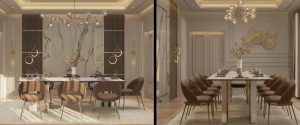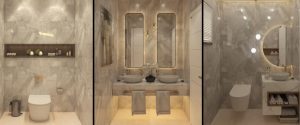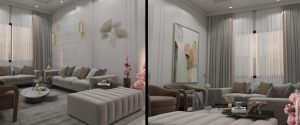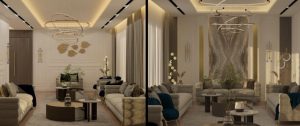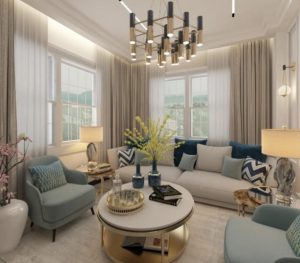Interior design is an art and science that goes beyond simply decorating spaces. It is a powerful tool that can transform mundane environments into inspiring and functional spaces that enrich people’s lives. From homes to offices, retail stores to hotels, the significance of interior design cannot be overstated. In this article, we will explore the importance of interior design, its impact on individuals and communities, and why investing in professional interior design services is crucial for creating harmonious and aesthetically pleasing spaces.
1. Creating Aesthetic Appeal:
The most apparent benefit of interior design is the aesthetic appeal it brings to a space. A well-designed interior can captivate the senses, evoke emotions, and create a lasting impression on visitors and occupants alike. Thoughtfully chosen color schemes, textures, furniture, and lighting can work together to create a cohesive and visually pleasing environment. Whether it’s a cozy living room, a luxurious hotel suite, or an inviting restaurant, interior design sets the tone and ambiance of the space.
2. Enhancing Functionality:
Beyond aesthetics, interior design plays a crucial role in enhancing the functionality of a space. Interior designers carefully analyze the layout and flow of a room to optimize the use of space and ensure efficient movement. They consider the specific needs of the occupants and design spaces that cater to their lifestyle, work requirements, or business objectives. A well-designed kitchen can improve cooking efficiency, an office layout can boost productivity, and a retail store can optimize the customer shopping experience.
3. Improving Well-Being:
The impact of interior design on human well-being should not be underestimated. Studies have shown that well-designed spaces can positively influence mood, reduce stress, and improve overall mental health. Natural elements, such as plants and sunlight, can be incorporated to create a sense of tranquility and connection with the environment. Proper lighting can regulate circadian rhythms and promote better sleep. By considering human psychology and well-being, interior design can create spaces that nurture and uplift occupants.
4. Reflecting Identity and Branding:
Interior design provides an opportunity for individuals and businesses to express their identity and brand. In homes, interior design reflects the personalities and tastes of the occupants. In commercial spaces, it communicates the values and image of the brand. A contemporary and minimalistic design might convey a sense of modernity and efficiency, while a rustic and warm ambiance may evoke feelings of comfort and tradition. Consistency in interior design with a brand’s identity can strengthen brand recognition and loyalty.
5. Increasing Property Value:
Investing in professional interior design can significantly impact the value of a property. A well-designed home or commercial space is more attractive to potential buyers or tenants. It can differentiate a property from others in the market and justify a higher price. Additionally, renovations and updates based on interior design trends can revitalize older properties, making them more competitive in the real estate market.
6. Promoting Sustainable Practices:
With growing environmental concerns, interior design has a role to play in promoting sustainable practices. Interior designers can select eco-friendly materials, energy-efficient lighting, and sustainable furnishings to reduce a space’s environmental impact. By incorporating green design principles, interior design contributes to a more sustainable and eco-conscious future.
7. Fostering Social Interaction:
Interior design can influence social interactions within a space. In commercial settings like restaurants, cafes, and communal areas, the layout and design can encourage social engagement and interaction. Comfortable seating arrangements, well-designed gathering spaces, and attention to acoustics can promote communication and community building.
8. Supporting Local Artisans and Industries:
Interior design often involves the use of custom-made furniture, textiles, and decor. Engaging local artisans and industries for such creations not only supports the local economy but also adds a unique touch to the space. Local craftsmanship can imbue a sense of authenticity and cultural richness, adding value to the design.
9. Adapting to Changing Needs:
Life is dynamic, and interior design must accommodate changing needs. Whether it’s a growing family, a business expansion, or evolving trends, a flexible and adaptable interior design can accommodate these changes without requiring a complete overhaul.
